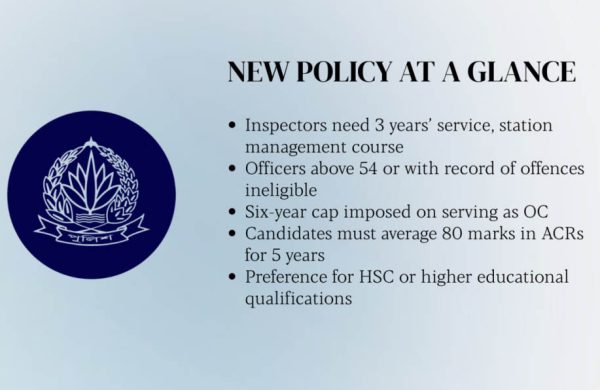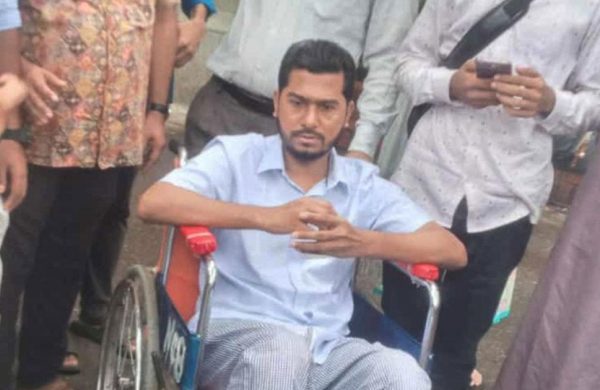Disappearances carried out in 3 stages
- Update Time : Sunday, June 15, 2025

-
The Commission of Inquiry on Disappearances has received 1,850 complaints.
-
1,350 have been verified.
-
345 people are still missing.
Staff Correspondent:
The Commission of Inquiry on Disappearances has revealed a systematic approach to enforced disappearances during Sheikh Hasina’s 15-and-a-half-year rule, identifying a three-tier structure behind these operations.
At the top of this hierarchy was what the report calls the “strategic leadership,” which included former Prime Minister Sheikh Hasina, her then Defence Adviser Tariq Ahmed Siddique, the former Home Minister, and other senior officials of the Awami League government.
The second tier comprised top-ranking officers of various law enforcement and intelligence agencies. At the base were members of these agencies who executed the operations on the ground under orders from their superiors.
These findings are part of the Commission’s second interim report, unfolding the Truth: A Structural Diagnosis of Enforced Disappearance in Bangladesh, which was submitted to Chief Advisor Professor Muhammad Yunus at the Jamuna State Guest House on 4 June. The report highlights the direct and indirect involvement of multiple forces and institutions in enforced disappearances.
According to the report, the commission has so far received 1,850 complaints, of which 1,350 have been verified. Among these, 345 individuals are still unaccounted for.
The report states that over the past decade and a half, a culture of tacit approval for such acts developed within law enforcement and intelligence agencies. Disappearances were not viewed as crimes but rather as part of standard operational procedure, legitimised by internal narratives of national security and public order. This institutional mindset normalised the practice, allowing it to be carried out with impunity.
The commission is now investigating the silence that prevailed within these agencies despite the severity of the crimes. One possible explanation, it says, is that disappearances were seen not as illegal acts but as responsibilities aligned with organisational goals.
An example cited in the report involves former RAB Director General Benazir Ahmed (later Inspector General of Police, now absconding), who gave high performance ratings to an officer involved in disappearances and extrajudicial killings. Benazir’s remarks described the officer as “very satisfactory” in terms of performance and praised his “high-quality” leadership, noting him as “polite,” “good-natured,” and “highly efficient.” No negative information was recorded in the officer’s file, despite his alleged involvement in grave human rights violations.
However, the commission’s documents also contain allegations of corruption and misconduct against another official. It is detailed, for instance, that the official routinely sent fish as gifts to the then director of RAB’s intelligence wing, Ziaul Ahsan—who later became the director general of the National Telecommunication Monitoring Centre (NTMC) and is now in prison. Yet, the documents do not link this official to any enforced disappearance or extrajudicial killing.
After the fall of Sheikh Hasina in the mass uprising of 5 August last year, the interim government formed the commission to investigate disappearances occurring between 6 January 2009 and 5 August 2024.
On 14 December last year, the commission submitted its first interim report, titled Unfolding the Truth, in which it stated that it had found evidence implicating Sheikh Hasina as an orderer in several cases of disappearances during her time in office.
The latest report also includes a chilling testimony from a prison guard. Recalling his first day on duty, the guard told the commission that he was instructed: “Prisoners can never be treated normally, as normal people are treated. They must be deprived of everything—of all rights—so that they can feel pain.” When he requested to be removed from his post, he was reportedly told that refusing to carry out these instructions could endanger his life.
DISAPPEARANCES WITH KNOWLEDGE OF HIGH-RANKING OFFICIALS
On 6 January, the International Crimes Tribunal issued arrest warrants against 11 individuals for their involvement in enforced disappearances.
Among them, six are high-ranking former military officials—five from the Directorate General of Forces Intelligence (DGFI) and one a former director.
They are Lieutenant General (retd.) Md Akbar Hossain, Major General (retd.) Md Saiful Abedin, Lieutenant General (retd.) Mohammad Saiful Alam, Lieutenant General (retd.) Ahmed Tabrez Shams Chowdhury, Major General (retd.) Hamidul Haque, and Brigadier General (retd.) Mohammad Towhid-ul-Islam.
The Commission of Inquiry into the disappearances reported that while these officials held senior positions within the DGFI, several high-profile individuals were subjected to secret detention, including former army officers Abdullahil Aman Azmi and Hasinur Rahman, as well as former ambassador Maruf Zaman.
A Major General-ranked army officer admitted to the commission that during his tenure as Director of the Counter Terrorism and Intelligence Bureau (CTIB), he had informed both Saiful Alam and Ahmed Tabrez Shams about Aman Azmi’s secret detention. Additionally, another DGFI officer confirmed to the commission that he had informed his superiors about the detentions of both Aman Azmi and Michael Chakma.
The report also notes that at least three DGFI officers implicated in the disappearances were on post-retirement leave (PRL) as recently as last November, meaning they were still under the jurisdiction of the Army Act and required army approval for foreign travel. All three are currently untraceable.
According to the commission, the outcomes could have been different if senior officers had collectively refused to comply with unlawful orders. The report stresses that military officers are not bound to follow illegal directives, a principle well understood within the armed forces.
However, there was a gross dereliction of duty at the senior level. These officers failed to offer guidance or psychological support to their subordinates when it was most needed.
Security analyst Major General (retd) ANM Muniruzzaman said, “Members of any force are obligated to carry out lawful orders—but no one is obliged to carry out an unjust order. Those who executed these enforced disappearances and killings showed a lack of moral judgment. They failed to understand that it was not their duty to carry out such commands.”
A pervasive culture of impunity developed during the authoritarian rule of Sheikh Hasina, he added, which severely compromised institutional accountability.
















